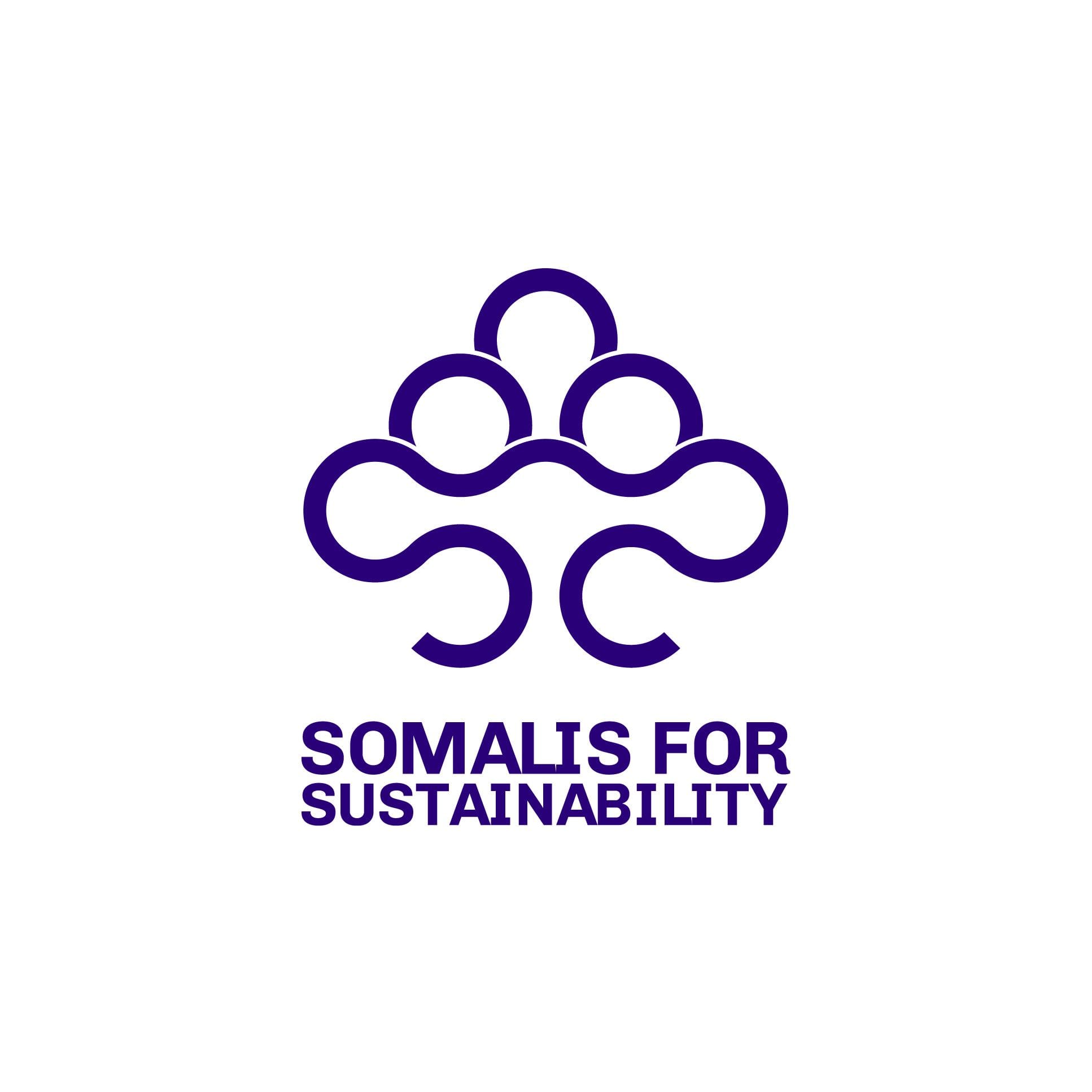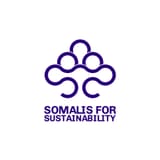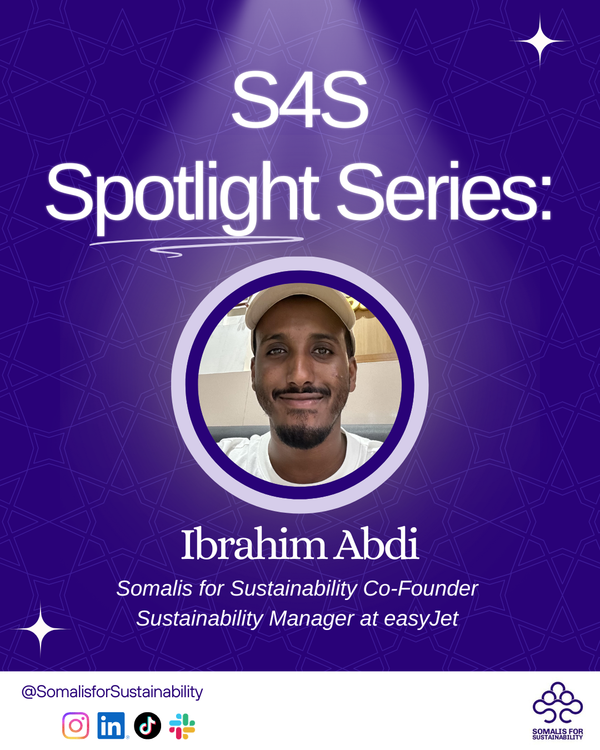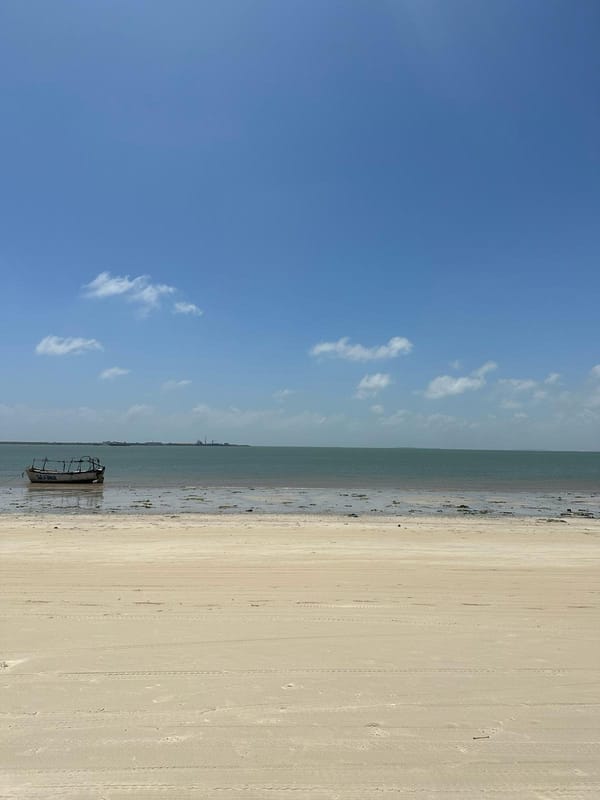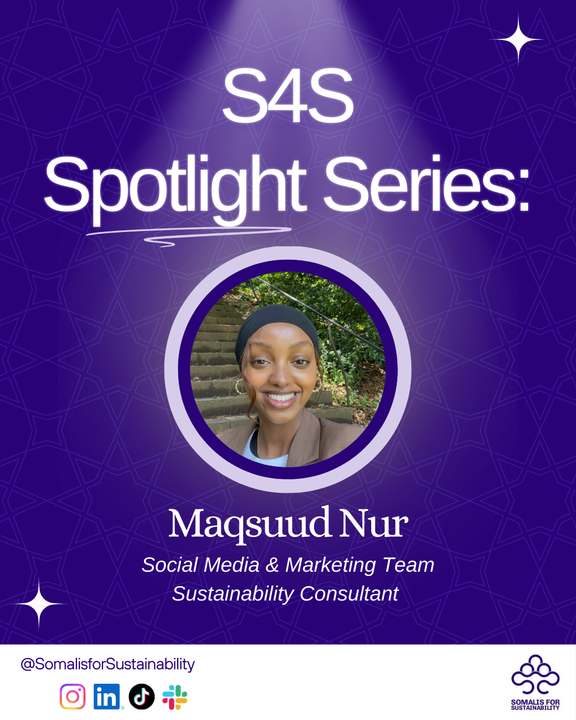Maydi Newsletter: May 2025
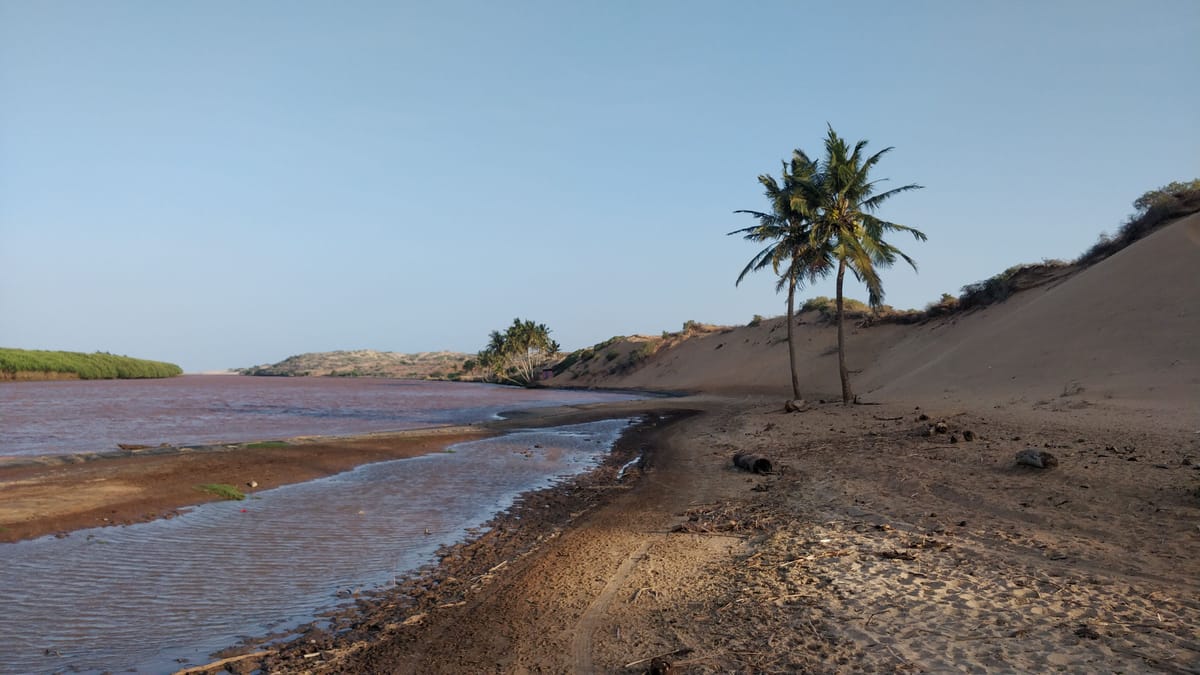
Hi everyone!
Welcome to this month’s edition of the Maydi Newsletter! In this edition, we cover our participation in a roundtable at UCL on water scarcity in the Somali Horn, our first careers event with Octopus Energy Equality Foundation (if you missed it, don’t miss the next one — the FOMO was real), and a summary of an article on how climate change is affecting Somalia’s exports.
We have a webinar planned next month on climate forecasting, so be sure to follow us on social media for more details
Until then, thank you—as always—for reading!
🗣 S4S News
S4S hosts first career-focused event with Octopus Energy Equality Foundation
On Thursday, May 22nd, Somalis for Sustainability (S4S) hosted a collaborative event with Octopus Energy’s Equality Foundation to spotlight career pathways in the growing renewable and sustainability sector. We were thrilled to welcome nearly 100 attendees to Octopus Energy’s Oxford Street headquarters in London, making it our most well-attended event to date!
Amidst a disappointing backdrop of statistics all pointing to the sad reality that the UK environmental sector is the second least diverse industry in the country (just after farming), it was uplifting to host a panel of distinguished Octopus Energy employees, including our very own Iman, with roles ranging from operations and delivery manager, to software engineer and technical specialist. With such experience and expertise on show, the audience was treated to invaluable and honest insights into the panel’s respective individual journeys and how they managed to achieve careers in the sustainability industry.
Advice ranged from stressing the importance of first having self-belief in your ability to land roles within the industry as well as finding good mentoring figures to usher you into your sustainability career, to assuring people that no career in sustainability is a linear path, and that most of the panellists had to shift from field to field before landing their current roles. In summary, if there was a key takeaway from the event, it is that what they encouraged was for people to continue having serious conversations about the green industry, whilst also keeping an open mind about what kind of opportunities it could provide.
The event ended with an informal networking session for attendees to learn more about both S4S as well as Octopus Energy’s current career opportunities, all whilst enjoying some delicious catered Somali food from Sabiib restaurant. We have more engaging events in the pipeline, so be sure to keep an eye out for announcements on all our social media accounts!
S4S invited to participate in a roundtable held at the University College London (UCL)
On May 6th, S4S was invited to participate in a roundtable discussion at UCL alongside policymakers, academics, and civil society leaders. The discussion focused on the importance of knowledge sharing in addressing water scarcity across the Somali Horn. A key point raised was that, despite political differences and drawn borders, Somali communities across the region face similar challenges. Therefore, it is critical to establish avenues for collaboration, such as this forum, which enable the exchange of knowledge and the development of shared solutions to tackle the impacts of climate change. There was particular emphasis on how best to leverage indigenous knowledge alongside new technologies to support pastoralist and nomadic communities.
On May 7th, a public event was held at UCL featuring a panel that included Abdullahi Osman Geeljire, the Minister of Environment and Rural Development for Somaliland. Other panellists included Hana, who worked on a project with meteorologists and scientists to predict droughts in the Somali Region of Ethiopia, and Nuradin Dirie, ex-UN and a former politician and diplomat. The discussion was moderated by Dr Emmanuel Osteye, who works at the Development Planning Unit at UCL. During the panel, Nuradin highlighted that Somalis across the region are united by landscape, livelihood, and crisis, despite their political differences. In addition, a significant point raised was that although climate change has transformed pastoralism, it remains a central way of life for many. The event concluded with a Q&A session, where many young Somali attendees shared their perspectives and ideas.
What is the latest in the Horn?
How is climate change impacting Somalia’s exports?

Recent research conducted by our partners at SIMAD University analysed over 30 years of data to understand the impacts that the climate has had on Somalia's exports. In 2022, Somalia was afflicted with the longest drought in four decades, and as a by-product, almost 9 million people were impacted. In 2023, Somalia was swept by a widespread and relentless flood, which further negatively impacted the country's agriculture and infrastructure. Somalia is heavily dependent on agriculture, with over 70% of the population relying on farming, herding and pastoral activities. The aftermath of flooding and droughts would therefore naturally be a hit to both Somalia’s economy and its sustainability. Over time, agriculture's contribution to Somalia’s GDP has dropped from 65% to 60% over the last two decades.
Somalia’s economic growth has seen other effects over the years, but declines are most noticeable post-2017. To name a few, diseases, droughts, and market disruptions are challenging Somalia’s economic growth. Political instability and conflict also play a critical role in Somalia’s social cohesion, sustainable development and economic resilience. By this, we mean disputes over water and land, especially in central and northern rangelands, which have been exacerbated by droughts. This conflict had led to the displacement of more than 400,000 people from their home communities.
Research over the last 30 years has indicated that climate change and conflict are now reshaping the country’s ability to trade. Research shows that rainfall, as well as rising temperatures, have constrained Somalia’s agricultural and livestock performance over the last 10 years. Since the 1990’s Somalia's banana and sorghum production dropped by over 50%, and now Somalia is almost unable to export bananas. Rising temperatures and water scarcity mean soil is less fertile, and more stressed due to the short growing seasons Somalia faces. Somalia peaked between 2015-2016 at over USD$530 million but has been unable to return to such economic growth, exacerbated by external factors like Saudi Arabia imposing a partial import ban in 2016. As a result, this puts them in the backseat in the global market. The significance of climate change is not to be undermined. Analysis from this research emphasised that even a 1% rise in average temperature reduces agricultural exports by almost 9%. To summarise, export performances are better with rainfall, however, Somalia’s export performance declines with rising temperatures and internal conflict. However, let’s not forget that in Somalia, the rainfall that is reliant upon is both erratic and unexpected.
To combat the challenges Somalia faces, some proposals have been put forward. Firstly, Somalia should expand their export products. This way, they are not as dependent on rainfall to boost the economy. Secondly, internal conflicts must be addressed as they are impacting locals as well as global trade. Market access should be made accessible by the authorities. Finally, the government should make more effort to invest in sustainable and climate-resistant systems to provide long-term stability in the country and assist farmers in overcoming challenges faced by climate change.
Word of the Month: Dhismo (Dis-moo) Construction 🚧
Somalia’s construction industry is currently undergoing rapid growth driven by urbanisation, diaspora investments and government initiatives like the National Transformation Plan 2025-2029, which prioritises infrastructure as a pillar of economic development. However, the sector faces significant challenges, including poor safety standards, lack of regulatory oversight and minimal concern for environmental impact.
In response, ongoing reforms aim to strengthen building codes and improve professional training, especially for Somali youth entering the industry. A recent key example of sustainable development in Somalia’s construction industry is the Nagaad Project, launched in 2025 with World Bank support. It aims to improve urban resilience by upgrading infrastructure, supporting displaced communities, and promoting climate-adaptive design.
